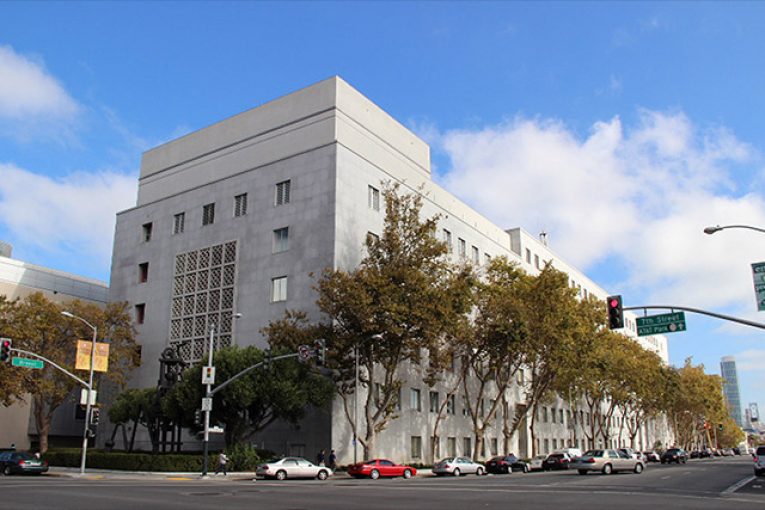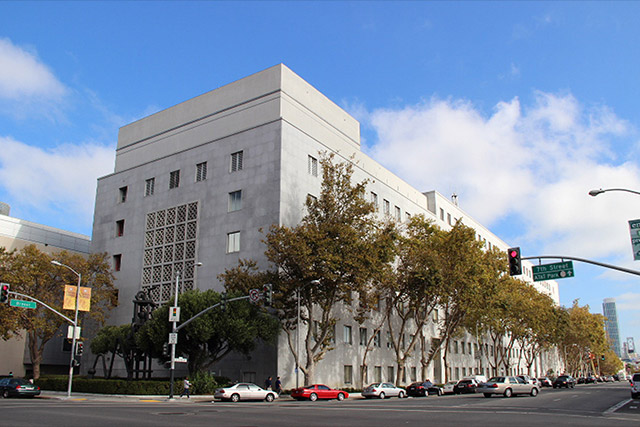

San Francisco – A San Francisco Judge on Monday granted a motion to suppress testimony from SF Police Officer Edward Tien leading to her not granting a holding order on what should have been a simple case of possession of a firearm.
Quintin Simonton faced felony charges for possession of a loaded firearm for an incident that occurred in July. Officer Tier and his partner Officer Govendiby were patrolling in the area of Market and Jones St which the officer characterized as an area with a high concentration of narcotics sales – the most was for marijuana.
The officer testified that his partner saw someone with an open plastic bag containing what he described as “buds” and also currency. The buds were identified as marijuana.
Upon arresting Mr. Simonton, he gave consent to search his backpack in which they located more marijuana but also a loaded firearm. Officer Tien also testified that they found a digital scale and cell phone.
After he was Mirandized, Mr. Simonton according to Officer Tien, said he had purchased the firearm four months prior and that he acknowledged knowing carrying a loaded firearm.
However, at this point, what seemed to be a routine case went downhill for the prosecution led by Assistant DA Allison Schultz.
Under cross-examination from Deputy Public Defender Max Breecker, Officer Tien was repeatedly pinned by the defense attorney. He acknowledged that he was not present when Mr. Simonton was  Mirandized.
Mirandized.
He said that he had a conversation with Officer Govendiby who said he was going to Mirandize him as Officer Tien left the room to attend to something else.
When he came back, he found the Officer questioning Mr. Simonton. On the stand, he assumed that Officer Govendiby had Mirandized the suspect.
However, when pressed by Mr. Breecker as to when Officer Govendiby told him he had waived his Miranda rights, Officer Tien acknowledged, “I don’t recall.”
Mr. Breecker moved to strike all of Officer Tien’s testimony, but the Judge said that she would delay ruling on that until the motion to suppress was heard.
It went further downhill for Officer Tien who admitted that he did not see what Officer Govendiby told him.
He was told, “That guy just banded out a deal,” and was told to arrest “that guy.”
Under redirect from Ms. Schultz, Officer Tien was asked about the chain of events which he said was that Officer Govendiby pointed out who to arrest, they took him to the station, he said he was going to Mirandize him to start the interview, Officer Tien never saw the Miranda, but assumed it was given and that Mr. Simonton waived the rights.
Ms. Schultz had Mr. Tien state that he knew Mr. Govendiby’s pattern of behavior and that he was known to have Mirandized suspects properly upon arrest and had never been accused of questioning suspects without given the proper warning and received a waiver.
Under re-cross, he acknowledged this was between 5 and 10 times total.
The Judge however was not sure that the prosecution could fix this problem through establishing “custom and practice” and wanted to review the law.
Ms. Schultz after lunch attempted to put Officer Tien back on the stand to lay foundation to show Officer Govendiby’s body worn camera presumably to show that he had Mirandized Mr. Simonton. However, Mr. Breecker argued that this really wasn’t the point – that Ms. Schultz had the wrong officer on the stand because he was not able to question Officer Tien on the details of the arrest because he hadn’t seen it.
The Judge says, “The Harvey-Madden rule requires that when one officer furnishes another officer with basis for arrest, the people must show the basis for the first officer’s information.” She said, “They must show some kind of corroborating information that shows that what the first officer saw was not just a figment of his imagination.”
As she pointed out the reason for this rule is that the defense is entitled to cross examine the officer at issue to determine things like distance, line of sight, and other factors that could impair his ability to adequately observe the behavior of the suspect.
She said, “The question in my mind is what the people have that overcomes that problem.”
Allison Schultz then largely repeated the evidence presented to this point – the officers were in an area known for marijuana sales, Officer Govendiby, according to the testimony of Officer Tien stopped the car indicating that he had seen a drug deal, she argued that the fact that the two officers had worked together for a long time and he accompanied the officer for the arrest.
Max Breecker responded, “The crux of the issue – I have no idea of what was observed by Officer Govendiby and I have no ability to cross-examine Officer Tien about Officer Govendiby’s observers because Officer Tien has no idea – he didn’t see anything.”
“The only thing we have is just a blanket conclusory hearsay statement,” he said.
He said, “I think it’s hearsay and it should not be introduced.” He pointed out this was not a detention, “he was arrested. He was placed under arrest and we really don’t know what was observed.” He added, “The people just called the wrong witness.”
Judge: “Based on the testimony that I heard, I am going to grant the defense motion to suppress.” She said, “In this instance, the Harvey-Madden rule precludes the reliance by the people on whatever it is that Officer Govendiby saw. All they really have is a hearsay statement.”
She acknowledged that there was some indicia of reliability to the statements, but ultimately ruled, “I don’t think that’s enough to constitute the corroboration required to overcome the Harvey-Madden bar.”
She granted the defense motion to strike that testimony as hearsay for purposes of the motion to the suppress. As a result, there was insufficient evidence to hold Mr. Simonton to answer on the weapon’s charge.
One question that was undecided was whether the Prosecution would get another bite at the apple to refile the case or whether the failure to gain a holding order meant the case was dismissed with prejudice.
—-David M. Greenwald reporting






